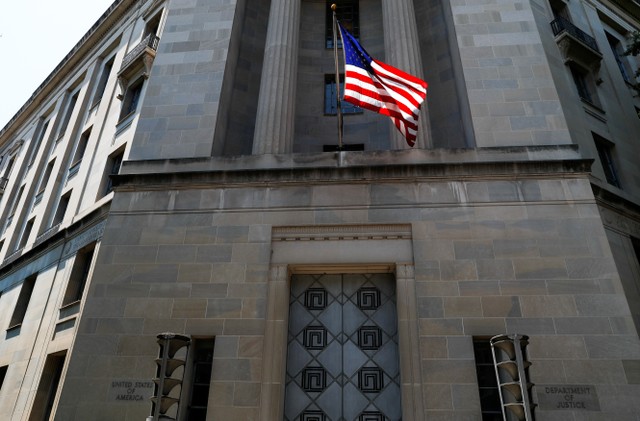Democratic Party faces strong chance of winning control of US House at Nov 6 elections

- Country:
- United States
After two years of wielding no practical political power in Washington, the Democratic Party faces a strong chance of winning control of the U.S. House of Representatives in next week's election, with Republicans likely to keep the Senate.
Taking a majority in even one of the chambers in the Nov. 6 elections would give Democrats a chance to more effectively oppose Republican President Donald Trump's agenda, as well as potentially launch investigations into his administration.
Republicans hold a 23-seat majority in the 435-seat House, far wider than their two-seat majority in the 100-seat Senate, but are more vulnerable in the lower chamber where they are defending 41 seats without an incumbent on the ballot, the most since 1930.
In the Senate, which gives more voice to the rural voters who make up an important part of the Republican base, Democrats are defending 10 seats in states that Trump won in 2016, some by huge margins. That favours Republicans.
Several states have experienced unusually high levels of early voting, according to data from the University of Florida.
WHAT ARE THE PARTIES FOCUSED ON?
Democrats have focused their closing messaging on defending the 2010 Affordable Care Act, popularly known as Obamacare, and its protection of insurance coverage for people with pre-existing conditions.
Republicans have played up the Senate's recent confirmation of Brett Kavanaugh, Trump's second nominee to a lifetime seat on the Supreme Court, which cemented a 5-4 conservative majority. Trump has also focused attention on immigration issues, including a caravan of migrants from Central America headed through Mexico toward the U.S. border.
"They (Democrats) misread the electorate in many areas, especially when it comes to the Senate," said Marc Lotter, a former top aide to Vice President Mike Pence. "You have seen a big shift toward Republicans in many states that the president carried."
WHY DO REPUBLICANS HAVE AN SENATE EDGE?
Democrats, who last controlled the Senate in 2014, are spending hundreds of millions of dollars trying to protect five critical seats where incumbents are particularly vulnerable this year. Losing just one of the seats in West Virginia, Indiana, North Dakota, Montana and Missouri - all won by Trump in 2016 - could doom any shot of taking the Senate.
Opinion polls show toss-up races in Indiana and Missouri. In Montana, which Trump carried by 20 percentage points, incumbent Democratic Senator Jon Tester leads recent polls by more than 4 points. In West Virginia, which Trump carried by over 40 percentage points, Democratic Senator Joe Manchin led by as much as 16 points in one recent poll.
But in North Dakota, Democratic Senator Heidi Heitkamp has fallen far behind challenger Republican U.S. Representative Kevin Cramer in recent polls.
Republicans have sought to play up calls by some Democrats to abolish the Immigration and Customs Enforcement agency, better known as ICE, and the angry crowds of protesters who swarmed the Capitol to object to the Supreme Court nomination of Kavanaugh, who was accused of a decades-old sexual assault.
While straining to hold all the states Trump won, Democrats are also focused on Florida, Arizona and Nevada, which strategists said would be crucial pickups for the party.
HOW MUCH MONEY HAS BEEN RAISED?
One measure of the intensity of interest in this campaign season is fundraising. This year's congressional campaigns were on pace to break fundraising records for midterm elections, when Congress but not the White House is on the line, according to a Reuters analysis of campaign finance disclosures.
Democrats collectively out-fundraised Republicans. Senate Democrats raised at least $551 million, while Republicans raised at least $368 million. House Democratic candidates raised at least $680 million, while Republicans raised at least $540 million.
The total fundraising in each chamber topped what had been raised at the same point in the 2010 campaign cycle.
WHICH PARTY HAS THE ADVANTAGE IN HOUSE RACES?
In the House, Democrats are hoping they will overcome a disadvantage built into gerrymandered maps and capture seats designed to elect Republicans. Many of the seats in play are in suburban or urban districts that Trump lost in 2016.
Internal Democratic polling shows that health care and the Republican tax cuts that some voters view as a giveaway to wealthy Americans and corporations are winning issues for Democrats this November. Healthcare has proven a particularly potent issue in the House, which had repeatedly voted to repeal Obamacare over the past eight years.
Republicans have not given up their focus on the tax cut and continued economic recovery.
Doug Thornell, a former spokesman for the Democratic Congressional Campaign Committee, said that in tight Senate and House races, Republicans who have tried to rally Trump’s base of supporters by aligning themselves with the president were paying a price with independent voters.
"(Republicans) really don't have much of a choice. They have to embrace him, or they suffer the consequences," Thornell said. "When they embrace him, it turns off a whole bunch of voters they need to win."
(With inputs from agencies.)
- READ MORE ON:
- U.S. Immigration and Customs Enforcement
- United States of America
- University of Florida
- Mike Pence
- Karen Pence
- Messiah
- Joe Biden
- President
- Election
- Donald Trump
- Patient Protection and Affordable Care Act
- Health Care
- United States House of Representatives
- Political party
- Supreme Court of the United States
- Term of office
- Vice President of the United States
- United States Congress
- Heidi Heitkamp
- Joe Manchin










